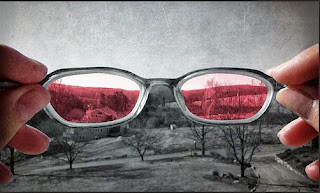Once upon a time, Microsoft Spell Check told me I spelled my name wrong.
Except it wasn’t once, but many times.
No matter how often I ignored that wavy red line, it came right back, whenever I typed my name in WORD.
I, on the other hand, thought this silent mechanical voice to be brazen in the extreme. How dare a mere computer program tell me how to spell my name? And what the heck is “Verda” anyhow?
After many bouts of bruxism, I at last cajoled my software into recognizing my ultimate authority. This is a good thing and a step in the right direction.
However, Spell Check is still going around telling lies behind my back, announcing to all and sundry that my name is, yes, Verda.
I know this to be true because I regularly receive emails addressed to this Verda person who continues to be me, Varda. In fact, it was after receiving just such a note, another in a long line of them, that I became motivated to blow off some steam at you, Dear Reader. The sender of this note, this miscreant misspeller of names was (get this) writing to ask me a favor.
Random Request
She was just this random woman who sent me a LinkedIn request a day earlier. I checked out her profile and saw that her professional focus dovetailed nicely with my own—she’s the founder of a company that brings together experts on child education and parenting to offer content on a variety of subjects. I, on the other hand, write about child education on behalf of Kars for Kids, a nonprofit car donation program. I noted that we also had a mutual professional acquaintance, one with whom I’ve done some good work. It made sense for me then to accept her contact request and I did so.
The very next day, however, she spammed me by requesting I give her a rating on her professional performance. I could but only respond:
Hello. I don’t KNOW you. How can I RATE you??
She wrote back,
Hello Verda,It was sent to all my connection, please just ignore itHave a good day.
Um, yuh. You spam me. Ask me for a favor. Apologize by MISSPELLING MY NAME and then tell me to have a good day?
You’re lucky I don’t bite your head off your neck, chew it up, and spit it out. (Virtually speaking, of course).
You liked that one? I’ll tell you another.
HR over at Kars for Kids asked me if I could post on some email lists advertising for web designers to join our team. I did so and received an avalanche of responses. Instead of just sending them on, I decided to weed through them to save HR some time. One that didn’t make the cut wrote (yup, you guessed it):
Hello Verda,My name is xxxx xxx.I have been designing website and doing internet marketing for over 7 years.I have extensive experience as a Project Manager - including a Web Project Manager, which basically means that I am very organized.Hope to hear from you soon.
Basically very organized, eh? Uh huh. That’s how you managed to make sure to refer to my original note to
GET THE SPELLING OF MY NAME RIGHT YOU NINCOMPOOP.
GET THE SPELLING OF MY NAME RIGHT YOU NINCOMPOOP.
I subdued my homicidal tendencies long enough to respond as follows:
Word of advice? I'm not HR, just helping out, but you spelled my name wrong. If you're applying for a job, you may want to take care on that score in future
Like, DU-UH.
But what’s in a name, anyway? Well, for one thing, there are the actual meanings of names. They’re important. They speak to the soul of a person. When someone calls you by your name, you feel good, perhaps without being fully conscious of that fact.
Verda means “green” in Esperanto.
Varda means “rose” in Hebrew (see: My First Blog).
Varda is the imprint of the memory of my Great Grandmother Raizel on my soul and heritage: the woman who put the red in my hair. It’s my mother’s friend who on seeing me through a hospital nursery window said, “She’s all pink and white!”
For a long time I didn’t like my name. The sound of it is odd as it falls on Western ears. But you know it’s kind of grown on me. It’s different. Distinctive.
Meantime, I’m trying to get a grip on this gripe about people spelling my name wrong. I’ve said to myself, “Self: maybe it’s just jealousy. When they think of you, they are seeing green.”
This little self-administered pep talk is supposed to help me lose my anger. But in reality, it feels like a kick in the kidneys every. time. I. see. that. misspelled. name. The person who types that, the one who taps out Verda on her keyboard, doesn’t care enough about the person behind the name to bother to get it right.
Because a person’s name is her essence, her honor.
I can make light of it and imagine that when she types out my name, she’s seeing green.
But more probably, she’s not seeing much at all.






























